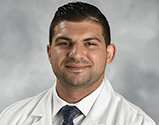
Prediabetes may be more destructive to the heart and vascular system than many clinicians realize, nearly doubling the risk of adverse health events, according to the authors of a new study.
Prediabetes, a relatively common condition, is diagnosed when blood sugar levels are clinically high but do not reach the level of diabetes type 2. The study, involving more than 25,000 patients over a median five years’ follow-up, found that serious cardiovascular events occurred in 18% of participants with prediabetes compared with 11% of those with normal blood sugar levels.
Participants with prediabetes were more likely to suffer a heart attack, stroke or other major cardiovascular event. What’s more, patients in the prediabetes group who were able to bring their blood sugar level back to normal retained a high level of risk. Fully 10% of these patients experienced an adverse cardiovascular event, compared with 6% of their peers with no diabetes or prediabetes.
The results are concerning and suggest that prediabetes is a much bigger problem than it may seem, said lead author Adrian Michel, M.D., of Beaumont Hospital-Royal Oak, MI.
“In general, we tend to treat prediabetes as no big deal. But we found that prediabetes itself can significantly boost someone’s chance of having a major cardiovascular event, even if they never progress to having diabetes,” Michel said. “Instead of preventing diabetes, we need to shift focus and prevent prediabetes.”
Clinicians need to spend more time educating patients about risks associated with elevated blood sugar levels, Michel contends. He suggests that patients be told about how high blood sugar affects heart health, why it may make sense to start medication much earlier or more aggressively, and how risk factor modification such as exercise and adopting a healthy diet can prevent illness.
The study, “Prediabetes Associated with an Increase in Major Adverse Cardiovascular Events,” will be presented at the American College of Cardiology’s 70th Annual Scientific Session in mid-May.




